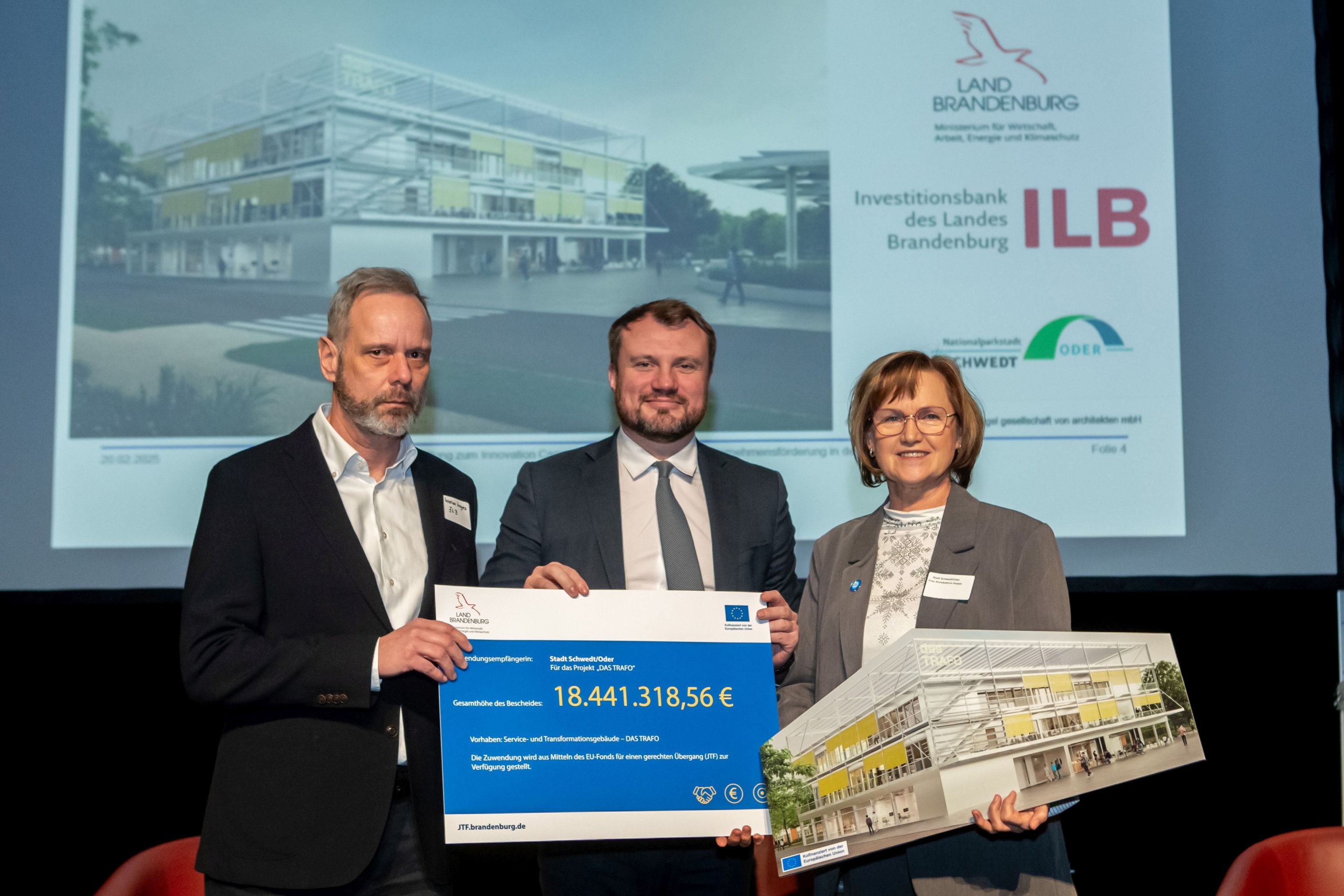New Innovation Campus and support for SMEs in Schwedt/Oder, Germany, thanks to the Just Transition Fund (JTF)
- 24 February 2025

Last week Minister of Economic Affairs of the German State of Brandenburg, Daniel Keller awarded a €18.4 million funding decision for the development of the Transformation and Service Center (TRAFO) in Schwedt (Oder). The building is the first building block of the Innovation Campus that will be created in Schwedt (Oder).
The funding decision was presented to Mayor Annekathrin Hoppe in the presence of Nicolas Gibert-Morin, Head of Unit for Germany, Austria and The Netherlands in DG REGIO. The event took place at the “Uckermärkische Bühnen” and served as a platform to discuss EU Cohesion Policy’s response to the structural challenges faced by the region.
Addressing key regional challenges with the EU’s Cohesion Policy
The Uckermark region, like many others, is confronted with major challenges that risk exacerbating disparities between regions, as outlined by Nicolas Gibert-Morin. These include globalisation and the technological transition, the demographic transition and the transition to a climate-neutral economy.
Mr. Gibert-Morin invited the region to turn these challenges into opportunities through diversification into future-proof industries, and stressed that the European Commission provides financial support through the Just Transition Fund. He explained that the Commission is actively promoting Europe's competitiveness through the recently adopted Competitiveness Compass, supporting the transition to a climate-neutral economy with the upcoming Clean Industrial Deal.
TRAFO: A Strategic EU Investment in Uckermark
The TRAFO centre is the first major milestone of the Innovation Campus. Located at the Central Bus Station (ZOB) in Schwedt/Oder, the centre will become a hub for businesses, start-ups, research institutions, and civil society, fostering innovation and collaboration in the transformation process. It will feature:
- Event spaces and workshops for experimenting with new technologies;
- Presentation areas to showcase technological advancements;
- Co-working and start-up spaces to develop and implement climate-neutral business ideas;
- Stronger cooperation between businesses and academic institutions to promote technology transfer.
The TRAFO will be fully operational by 2027, with additional JTF-backed elements such as a real-world laboratory, a boarding house, an advanced technical training centre, and the DemoHub following in subsequent years.
